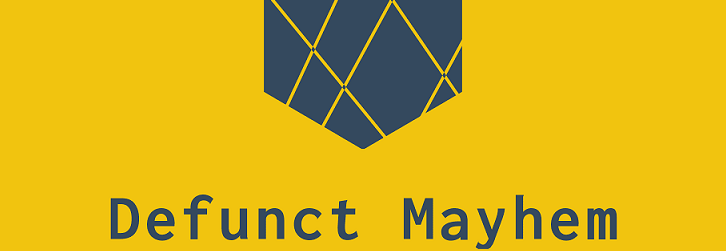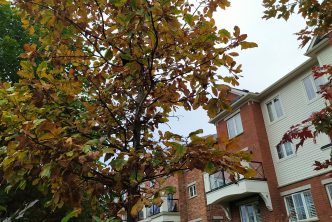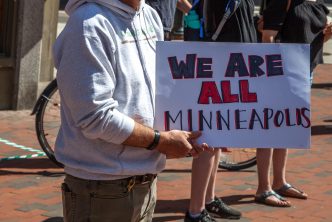[Originally read aloud to the CSA Board of Directors]
Surely at this point in the news cycle, you’ve seen the acronym “OSAP” cross your newsfeed at least once. Maybe you’ve seen the headline exclaiming that the province of Ontario is decreasing post-secondary tuition by 10%. If you’re really paying attention, you’re also aware that along with those two cuts, they’ve also put helium into the idea that compulsory ancillary fees at these institutions will become “optional” based on what students “choose” to pay into. Purportedly, giving students more agency over where their money goes and putting more change into our pockets.
It’s mostly bullshit.
Of course, with a conservative government, we knew cuts were coming. That makes sense. The political cycle is one that balances our society by providing people in need with respite and then quickly pulling that rug from under their feet for a few years while we save some money. The issue I take with most of the proposed changes is that they’re not helpful. Cutting OSAP down to 2015 levels is unfortunate. Taking away the free tuition for low-income students is scrooge-like, and the removal of the grace period wherin your OSAP loans don’t incur interest is, for all intents and purposes, just regular bullying. BUT of all of the things that could happen, we had to see this coming. We understand OSAP, we get why it has helped us or our peers, and it seems at the outset like the most obvious attack on student experiences.
The other two proposals won’t just continue to make university expensive, they tear at the fabric of what we appreciate about the places we study. The easy one, again, is tuition. A 10% reduction in tuition is simple, although potentially damaging for a bit. Every school in Ontario is funded through a variety of means. Tuition, private donations, investments, business ventures, and provincial funding are just some of them. To use the University of Guelph as an example, tuition makes up about 30% of the overall operating budget. This means that, in the bigger picture, the school is losing about 3% of its funding. The reality of the situation is that, like many businesses that are not solely out to make money, much of this money goes to salaries. Also, there are other services or fees that the university could raise to cover the difference (parking, rent on campus, residence, etc.). It sucks from an administrative point of view, but the schools will survive. I am concerned about the motivation behind this cut. The PC party regularly reminds us that we need to save money for the province to work on the (admittedly) enormous debt that has been incurred. Why cut the tuition though? Isn’t that something the liberal government is more likely to do? Fiscally, cutting tuition does not help the province or taxpayers. Sure students are paying a bit less, but that hasn’t shifted how much the province is giving to post-secondary. What then, is the motivation? It can’t be because the young conservative groups have been advocating for lower tuition, and it’s not likely they’ve bent over to the advocacy coming from CFS or OUSA, which is clear from the third cut.
Ancillary, compulsory, student fees. The “hidden” cost of going to school. Oh man. I really don’t know where to start with this. It’s super complicated, disastrous, and being overshadowed by OSAP and a tuition cut in a way that I’m afraid is not maliciously intentional, but still resolutely malevolent.
Thursday morning, January 17th, 2019, I came into work feeling relived, revitalized, and hopeful following a board meeting the night before. We had been able to approve a veritable smorgasbord of motions.
-A brief aside, for those who don’t know, I am the President of the Central Student Association at the University of Guelph. This is the group that consists of elected student leaders who represent the Undergraduate student population in a variety of different places across campus, the city, and more. Like the student association or student union at other schools, we provide services to students that aim to improve the resources available to students (health insurance, transit pass, legal/tenancy help, cheap printing, speakers, music, movie nights, student space, insurance for clubs, an on-campus restaurant, Foodbank, DIY Bike Centre, the SafeWalk program, financial council and support for student groups) we support student ideas, and we are the defacto student lobbyists on any decision made on campus. We also facilitate the referendum process (more on that soon)-
I personally despise board meetings, due to past experience, but this year has been amenable to conversations and reasoned thought, so it’s been growing on me again. Anyway, we were finishing a staff meeting with everyone when our VP External left to watch the live stream. Then we all got the news. The Triple Threat. We’d heard whispers of the third rider of the apocalypse the week before, but honestly, I thought it was just a load of hot air and didn’t give it any second thought. It’s real. It’s on the table. Help me fight.
Allowing students to choose which fees they pay undermines the very limited democratic system we have built for ourselves within a relatively restrictive bureaucratic institution. Every ancillary fee that students at the UofG pay have been voted on by the student body. We chose to pay these fees because they represent the values we hold on campus.
I did some soul searching over the weekend following the announcement, and I recognize that, yes, some of the fees we’re paying are old, but that doesn’t mean they’re out of date. At best, some of the old questions could be re-asked to re-validate their legitimacy. At worst, students entering their first year will have no experience with campus and will elect to, faultlessly, defund the programs and services that eke out an existence through the support of the student community.
Is this a question of right vs left again? Maybe. Students fees as they are set are something that I’ve been learning about more and more over the past few years and I think I am qualified to weigh in on the issue. Also, the recent proposal from the government shows an ingrained ignorance that has been evident in their other suggestions for post-secondary schools. It’s ridiculous, thoughtless, and reveals a deep-seated desire to shrink the provinces investment in education in the most spiteful way possible.
What’s really being called into question is the nature of student agency. Do we not get to determine what happens with our money. Yes, also the money of those that come after us. The thing is, we’ve established a democratic way of deciding what gets funded by us and what doesn’t. We vote. Some questions are phrased as an opt-out, like the dental plan, OCUS, the Foodbank, and the menstrual product initiative, and some aren’t. But the government mandating that people get to choose defeats the whole godforsaken process of voting. There are some places my tax dollars fund that I would love to opt-out of, but that’s just not how the system works. That’s not democracy.
What it shows, to me, is that there is contempt for students coming top down. There is an anger directed toward higher education and a willful ignorance to gather information before making decisions. THIS IS AN ATTACK ON STUDENT ORGANIZING.
Student fees are decided by and for students. Some of them cost, yes. All of them are important. Underrepresented groups, student determined initiatives, student social services, and student groups that wouldn’t run without these fees are all currently sitting motionless in the water. This gives uninformed people the opportunity to unsubscribe from all of these “fees” putting about $220 in their pockets. Sure, that’s a pretty piece of change, but it won’t pay for your new-needed paring pass. It won’t pay for your transit pass, or your presto card. It won’t pay your newly introduced club dues that need to be pay now that the financial support and insurance policy is gone. It won’t pay your registration to gryphlife, for your clubs website, and for the events you participate in or run.
A Second aside: What follows is information from an email I was forwarded from a friend who emailed the province asking for clarification [reformatted for convenience].
“Each institution has different ancillary fees. To note, each institution will be responsible for determining which services belong in the Essential Services category.
Essential Services – Mandatory Fees [JF – the following are “protected” on campus. Also they provided a preamble]
Fees used to fund major, campus-wide services and facilities, common to most institutions and/or contribute to the Health and Safety of the campus. Examples include: Athletics and recreation, Career services, Student buildings, Health and counselling, Academic support, Student ID cards, Transcripts, convocation, etc., Financial aid office, Walksafe programs
Non-Essential Services [JF – they do not define this category – I suggest this is intentional]
Fees used for spaces, services, and activities that promote campus life and community, Student Club Fees, Campus bar/café/restaurant, Student association membership fee, Handbook and agenda fees”
This specifically targets student groups, student organization, and student business. It targets student “union” organizing. The past 15 or so years in Ontario have been relatively tranquil, and we have forgotten how important and crucial the operation and action of student associations are. It’s time for us to start speaking up again. I know that I am on the edge of leaving student leadership, but I am not yet done. These next four months are going to be a lot, but I’m hyped, I’m ready, and I need help.
This needs to be a voter issue, not just a student issue. The same as the sex-ed curriculum, funding for public schools, and support for healthcare. Post-secondary education needs help.
The PROBLEM – REALLY – is that the people suggesting changes don’t know what the problems are. Hell yeah, there are problems with post-secondary. It’s exclusive, it purports to be the be-all-end-all of opportunity, it definitely costs too much, and – being real – the people who work as faculty get paid too much
There is a value to socialized services, especially for students. We pay into the system so that we all benefit. That $0.50 you pay to the Guelph Queer Equality isn’t what’s making you bankrupt. The $18.55 the CSA asks of you isn’t the thing making education too expensive.
If the Provincial government REALLY wanted to put money “back into students pockets” they would increase provincial funding for post-secondary education, they would value the student scenario as struggling, and they would as a fuck-load more questions before acting on the voices of the few.






